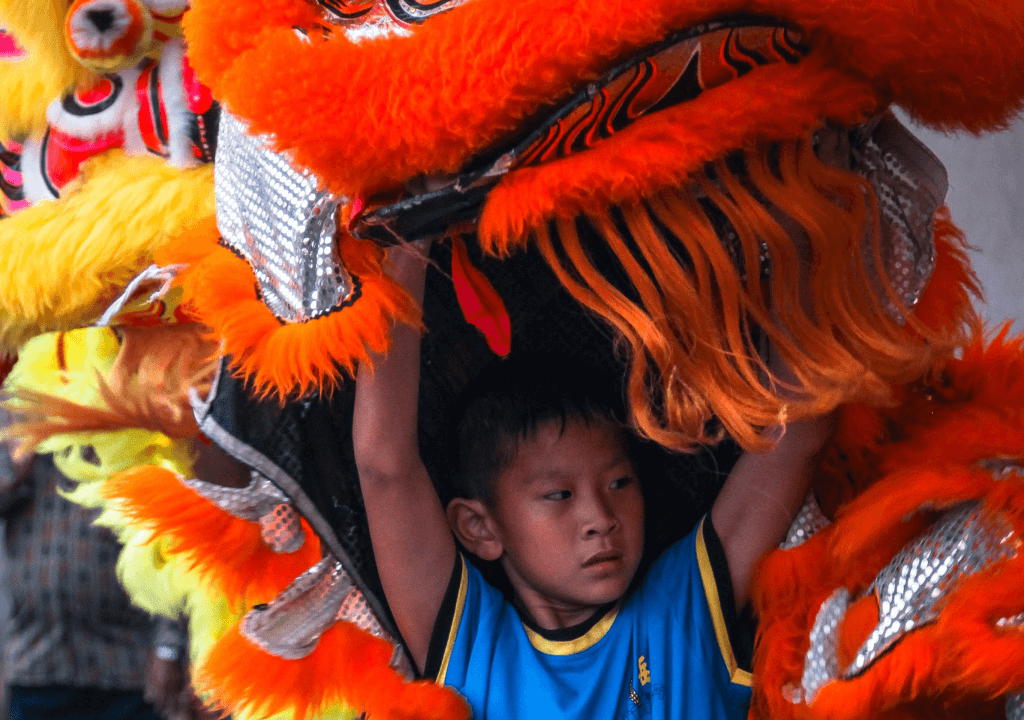The excitement surrounding the world’s second-largest economy seems to have recently faded. Despite grappling with various challenges, including economic stagnation, declining birth rates, the relocation of manufacturing projects, and heightened tensions with the United States and India, China is entering the new year with aspirations of reclaiming its stature as a global superpower.
As the Year of the Dragon commences, bringing a sense of renewal, even within the context of a communist nation, the Chinese people remain steadfast in their adherence to traditional beliefs and horoscopes. This year, traditionally associated with prosperity, holds considerable promise in the eyes of Chinese Culture. Nations following the Chinese zodiac or hosting substantial Overseas Chinese communities often experience a surge in birth rates during the Year of the Dragon. The belief that “Dragon babies” born during this time possess auspicious qualities contributing to improved life outcomes further bolsters the positive outlook.
Similar to individuals, China eagerly anticipates the approaching year with aspirations for prosperity. The nation aims to liberate itself from the burdens of the pandemic and is prepared to introduce new initiatives, with a focus on revitalizing the Chinese economy and strengthening foreign relationships—an imperative agenda at this critical juncture.
China strategically invests in various nations through initiatives like the Belt and Road Initiative, but its trajectory is intricately tied to partnerships with Russia and India. The US and EU’s shift away from supporting China’s economic expansion is evident in the reconfiguration of financial flows. Collaborative efforts among these three nations are vital for development, and the future course of China will undoubtedly be shaped by coordinated measures to encourage increased cooperation.
In contemporary times, China and Russia stand as exceptionally close allies, actively participating in extensive cooperation. This collaboration is strengthening, providing essential support to Russia in navigating the challenging landscape of tight Western sanctions. Additionally, China offers crucial political support amid ongoing Western resolutions concerning Ukraine. Despite their resilience in the face of Western pressure, both China and Russia exhibit a sense of economic unease when confronted with challenges such as losing access to Western markets, technologies, and investments. This constraint gradually impedes their ability to fully leverage their economic potential.
Putin is heading into the presidential election in March, with the Ukraine war prominently featured in his re-election campaign. His victory is virtually assured. Alongside his electoral focus, Putin closely monitors Russia’s economy for signs of overheating and breakdown. The International Monetary Fund predicts a 1.1% growth this year, primarily fueled by war expenditures, with over 29% of the budget allocated to defense. Persistent inflation and tightening sanctions further strain the economy, even as the energy sector remains robust. However, sustained war and social spending are contingent on oil prices staying above US$50-US$60 per barrel. And China is ready to buy Oil.
While Xi exudes confidence, he grapples with concerns about the economy, Taiwan, and US-China relations. Surface-level indicators suggest a robust Chinese economy, with a 5.2% growth last year meeting the government’s target. Yet, underlying trends signal potential long-term challenges and stagnation. High deflation, real estate sector issues affecting confidence and investment, declining foreign direct investment, and local debt problems contribute to economic tensions in the provinces. The election of William Lai Ching-te in Taiwan has crushed aspirations for more conciliatory leadership and popular opinion in the country, as it is less advantageous to Beijing. Any Tensions raised in the area, China needs Russia there or Russia is only superpower to help China in Taiwan Issue.
Another possible challenge for Xi comes from the impending US election; if Trump wins, it might worsen the trade conflict and adversely affect China’s ties with Russia and India. Trump has favorable ties with Putin and Modi. Russia and China united this much only because of the Ukraine War, and Trump can possibly bring a resolution of the war. So any events in the Ukraine War will deteriorate resolution. Putin is still cautious of any signs that China is cutting down on its diplomatic and economic backing for Russia, but Xi will be keeping a careful eye on Russia’s activities in Ukraine and its dealings with North Korea.
Currently, China and India grapple with a strained relationship, marked by eleven military conflicts. Despite Western support for India, they don’t want to align with Western interests, India is judiciously maintaining a cautious distance in its diplomatic engagements. Recognizing the potential drawbacks of aligning too closely with Western interests, India, under the leadership of Narendra Modi, who initially sought positive relations with China before the Galwan Valley conflict, is now openly critical of China. As Modi faces elections this year, he is likely to continue as India’s Prime Minister. Modi’s commitment to upholding Indian identity, along with his party’s emphasis on Indian principles over Western ones, underscores India’s reluctance to align itself closely with the West in the future. Consequently, it becomes evident that China and India need to foster cooperation in the future. Despite their differences, their shared interest in attaining a global superpower position allows for substantial mutual support. Russia, serving as a common friend to both nations, could play a crucial role in solidifying this relationship in the near future.
In contrast, recent years have posed challenges for China. However, as the nation transitions from the setbacks reminiscent of a rabbit to the promising Year of the Dragon, optimism prevails. The impending Chinese New Year serves as a symbolic turning point, demonstrating China’s resilience in overcoming adversities. No longer defined by the difficulties of the recent past, China enters its auspicious Year of the Dragon with a renewed sense of purpose, poised to shape a more prosperous future.








